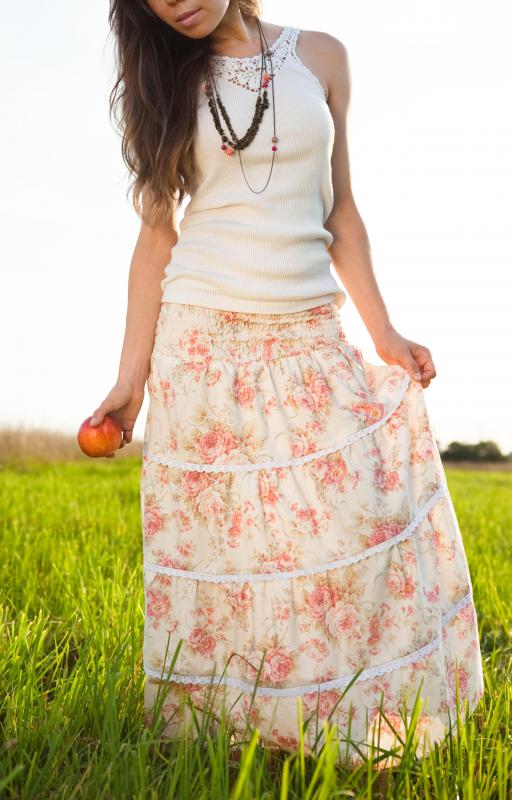At WiseGEEK, we're committed to delivering accurate, trustworthy information. Our expert-authored content is rigorously fact-checked and sourced from credible authorities. Discover how we uphold the highest standards in providing you with reliable knowledge.
What Was the Summer of Love?
As numerous pop culture experts like to point out, the 1960s was a decade of political and social upheaval. A growing segment of the younger population became disillusioned with the conventions and restrictions of straight society, leading some to form a functional counterculture. The Summer of Love would prove to be a watershed moment for thousands who had taken Dr. Timothy Leary's advice to 'turn on, tune in and drop out.' Others, including the mainstream advertising industry, may have seen dollar signs falling during the Summer of Love.
Although the Summer of Love didn't happen until 1967, the Bohemian spirit which inspired it was already present in the 1950s Beat generation. Poets, artists and musicians who had already rebelled against mainstream society's perceived hypocrisies found kindred spirits in the burgeoning hippie movement of the mid 1960s. In liberal cities such as Berkeley and San Francisco, the counterculture movement gained significant momentum and influence. By January of 1967, the first organized be-ins and love-ins were being organized, lead by the non-violent protest philosophies of Mahatma Gandhi and Martin Luther King, Jr. When singer Scott McKenzie released his song San Francisco in 1967, rumors of a major love-in during the summer months were rampant.

It was this level of anticipation which fueled the Summer of Love machinery. Counterculture leaders in the Haight-Ashbury district of San Francisco were especially hard-pressed to plan an event commensurate with the Summer of Love hype. The idea of actually planning a 'spontaneous' event such as a love-in seemed especially counter-intuitive. The hope amongst the counterculture crowd was that musicians and other artists would naturally migrate towards Haight-Ashbury and other major counterculture centers. By the spring of 1967, even mainstream news agencies and marketing strategists had taken an interest in the proposed Summer of Love. The trappings of hippie culture were now being introduced to the masses, much to the disappointment of the hippies themselves.

The Summer of Love may not have been the commercial event some had hoped for, but it did have an effect on mainstream culture. Television shows skewed towards a younger audience began to appear. Topics once considered taboo or controversial could finally be shown on television and in movies. Advertisers employed many of the visual and lyrical elements of the counterculture. Although mainstream America may not have fully embraced the hippie movement, the Summer of Love provided a positive look inside the minds of a generation once feared lost.
AS FEATURED ON:
AS FEATURED ON:













Discussion Comments
Any attendees of the 1967 Summer of Love out there?
I really want to hear about it from a person who was actually there. I've read a lot about it, but it would be really interesting to hear from someone who was actually there during the events and concerts.
I've heard that it actually wasn't what the Hippies were aiming for and that there were many unhappy incidents. I'm just curious how the people who were there think about it looking back. Do they see it as a great fun time or something that completely went in a direction it shouldn't have?
Maybe this is not the right term to use, but I kind of see the Summer of Love event in San Francisco as the pilgrimage of the Hippies.
Considering how so many Americans were mourning after the death of sons, brothers and husbands who were fighting in Vietnam, the Hippie call to a few months of peace and love in San Francisco must have seemed very attractive to young Americans. I think they just wanted to be with people who thought alike, who were sick of the war and wanted to forget all about it.
My dad says that the summer of love in 1967 wasn't just popular in the U.S. but internationally too. Apparently, Britain also had a summer of love after the American one (I think my dad was there although he denies it!) The song San Francisco also became number one on the lists in Britain.
I guess the Hippies didn't really want this popularity but it did have a good outcome for them. It really introduced the whole West to Hippie culture.
Post your comments